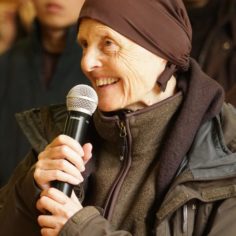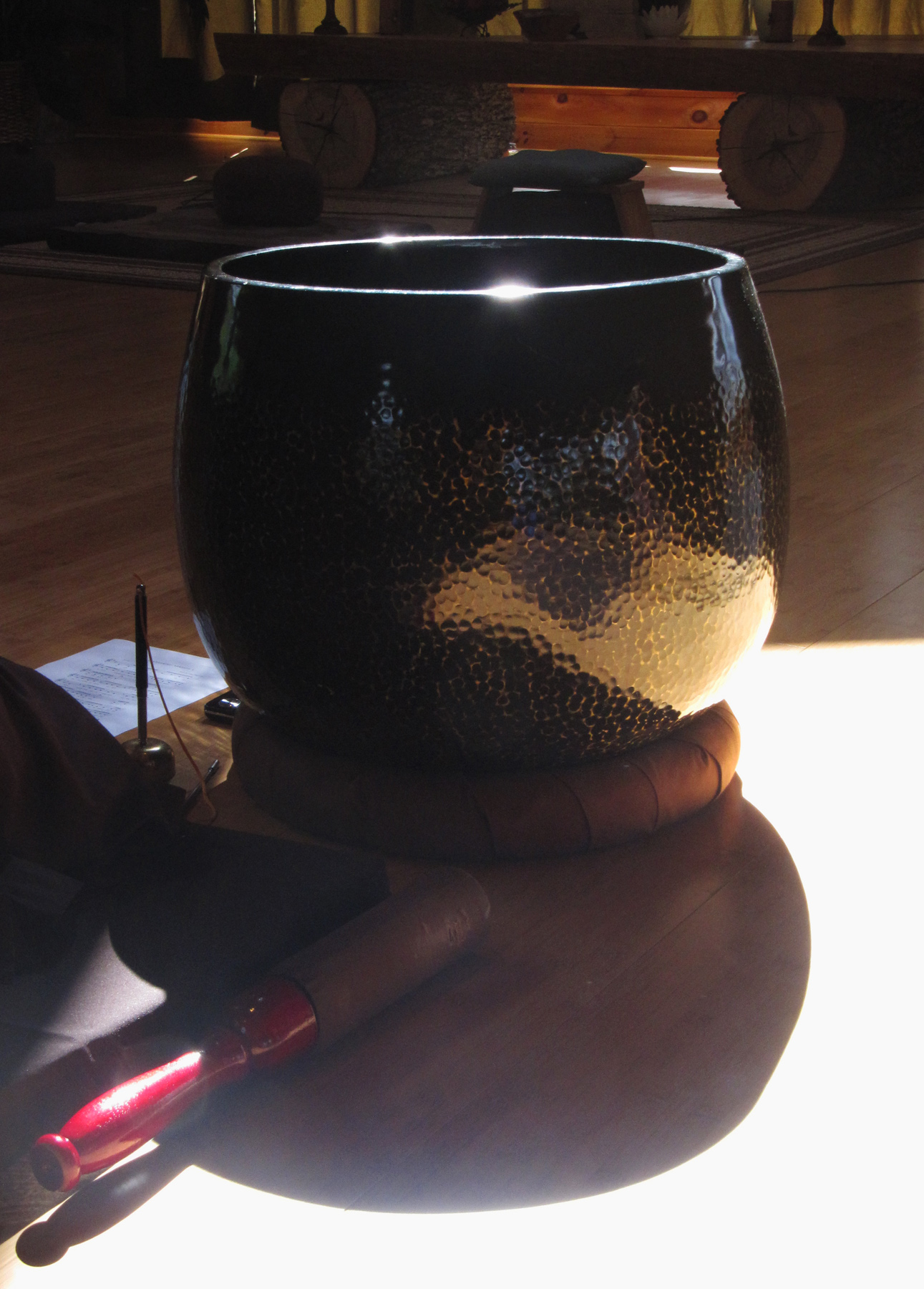By Sister Annabel Laity in October 2010
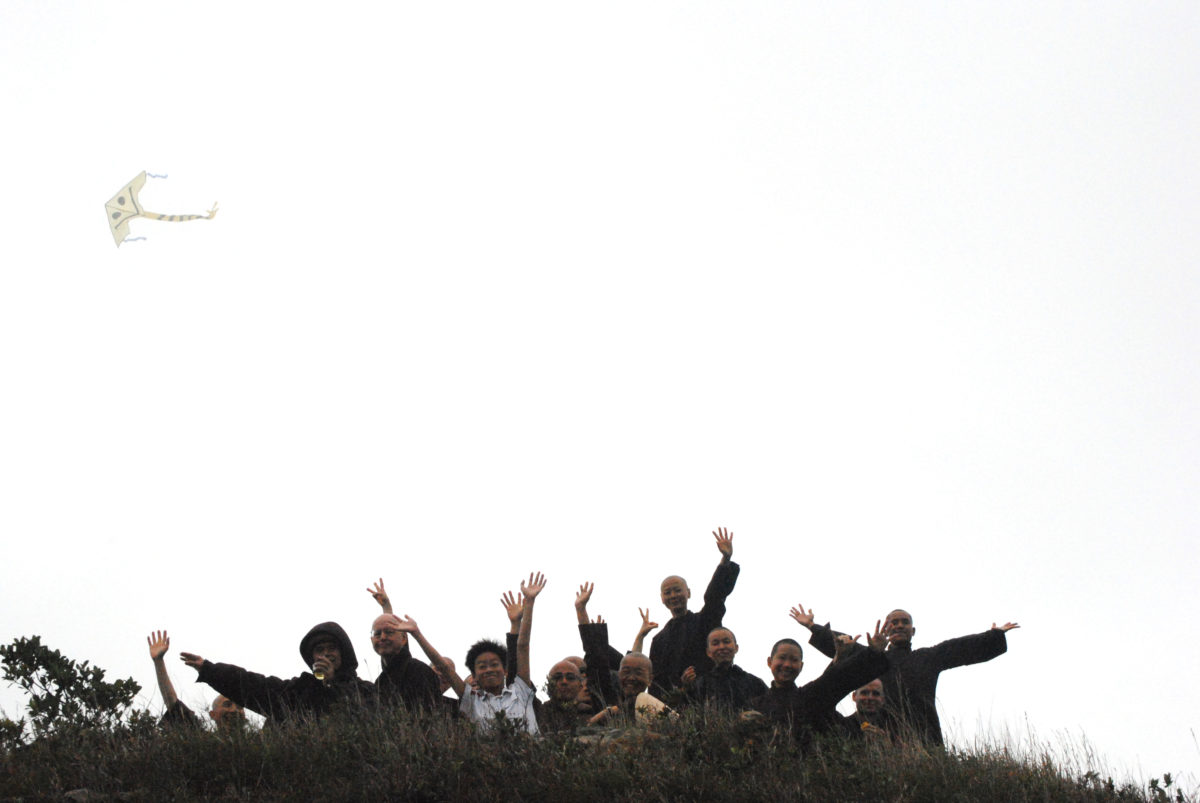
No Worries
Report from the European Institute of Applied Buddhism
By Sister Annabel
The European Institute of Applied Buddhism, also known as the Ashoka Institute, will celebrate its second anniversary on September 10, 2010. We are enjoying ourselves very much in Germany, where we have favorable conditions for the practice: the support of the local people,
By Sister Annabel Laity in October 2010

No Worries
Report from the European Institute of Applied Buddhism
By Sister Annabel
The European Institute of Applied Buddhism, also known as the Ashoka Institute, will celebrate its second anniversary on September 10, 2010. We are enjoying ourselves very much in Germany, where we have favorable conditions for the practice: the support of the local people, the teachings of Thay, fresh air, and a daily practice timetable.
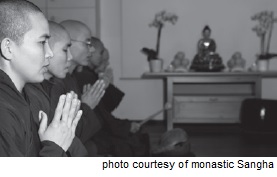
The Ashoka Institute and neighboring Great Compassion Monastery have the taste and fragrance of the practice since monks, nuns, laymen, and laywomen have been practicing there for at least eighteen months. When guests arrive, they are welcomed into the ambience of mindfulness practice. There is a feeling of being at home when we help with cutting vegetables or cleaning toilets during a retreat or course. It is possible to apply what we study straightaway when we live with others who are practicing. Thay was with us in June for German and Dutch retreats. Every day we did walking meditation in the park that lies directly in front of the Ashoka Institute. Our campus became very alive with six to seven hundred people. Almost the whole of the Plum Village monastic community, 120 monks and nuns, came by bus and van from France. The monks and nuns did all the cooking in a temporary kitchen set up in the garden of the Great Compassion Monastery (formerly Zivildienstschule, or civil service school).
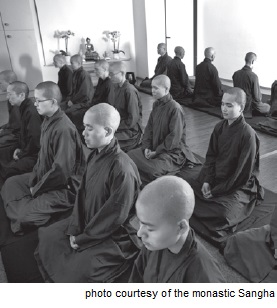
During these two retreats many of our guests camped in the orchard, and some stayed in pensions and hotels. The fact is that we have received permission to live in only one fifth of our large building and in the monastery. We have held courses and conducted all other activities in the monastery over the past year, since most of the Ashoka Institute is still a building site. This year, Great Compassion Monastery is being looked after by a group of six nuns, while the monks and the remaining nine nuns live in one fifth of the Ashoka Institute building. The monastery has enough space for eighty people to stay, and the habitable part of the Ashoka Institute enough space for about one hundred. Now we really want to make the rest of the building habitable so we can host as many people as want to come.
The courses offered this year have had a wide range of topics, such as bereavement, terminal illness, fear, love, and parent-child relationships. While most courses are led by resident monks and nuns, some are taught by visiting lay Dharma teachers, such as a course for business people and a course for mothers on child-raising. If you are a lay Dharma teacher and would like to lead a course here, please let us know.
In spite of ups and downs with construction regulations and financial difficulties, we enjoy the practice with our friends who stay with us. Most of our visitors are German, but many come from other European countries, especially Holland. We also have a few guests from the U.S. and Southeast Asia.
We are confident that the Ashoka Institute will grow and survive. The initial stages may be difficult, but we do not need to worry. After all, the name of the Institute, Ashoka, means “no worries.” If you live in the U.S. and would like to help financially, please send donations to EIAB Fundraising Committee, c/o Deer Park Monastery, 2499 Melru Lane, Escondido, CA 92026. Checks should be made payable to “Unified Buddhist Church” with a memo: “Funding for EIAB.” If ever you are in Europe, please do not forget to visit us for a week-long course, a weekend course, or a longer stay. Our website is www.eiab.eu and next year’s prospectus will be available online in November.
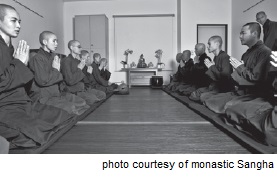
Historic Visit to Southeast Asia
Thich Nhat Hanh and the brothers and sisters of Plum Village will make a historic visit to Southeast Asia, including Singapore, Malaysia, Indonesia, Thailand, and Hong Kong, from September 8 to November 14, 2010. Due to recent events at Bat Nha Monastery, our brothers and sisters in Vietnam who were ordained with Thay are now dispersed. The majority of the young monastics found refuge in a small, simple center in Thailand. During this trip to Southeast Asia, Thay will inaugurate this center in order to support the young monastics who went through traumatic experiences in Vietnam. Thay and the Plum Village monastics will also lead retreats, days of mindfulness, and public talks for the local people. In Indonesia, Thay will offer two retreats as well as public talks and days of mindfulness in Jakarta, Bogor, and Yogjakarta. The community will visit the historical site of Borobudur, one of the wonders of the world.
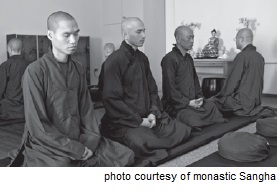
True Freedom: Prison Dharma Pen Pal Practice
The Community of Mindful Living receives many letters from incarcerated friends, asking for complementary subscriptions to the Mindfulness Bell, books, and other resources in their life of practice. In response to the needs of incarcerated practitioners, a group of monastic and lay friends has formed a pen pal program, True Freedom: Prison Dharma Sharing. Peter Kuhn, a member of the World Beat Sangha in San Diego and the Still Ripening Sangha at Deer Park Monastery, has volunteered to help coordinate the pen pal program.
Peter writes: “There is a reason Buddhists frequently do prison and hospice work. These are the shunned, neglected, hidden, locked up members of our society. Most of us have fear about encountering them and aversion to dealing with these challenging dynamics. What I love about this work is that by opening my heart to the disenfranchised people in our world, I also open my heart to the disenfranchised parts of myself. As I learn to truly show up and care for these populations I learn to be present and attend to the parts of myself that are scorned, shunned, feared, and silenced.”
True Freedom: Prison Dharma Sharing needs writers for pen pal correspondence with inmates looking to nourish their practice in the Plum Village tradition. The program especially needs male writers, since most letters come from male inmates. Writer privacy is protected as all mail is routed through the CML address.
Contact Peter at peterkuhnxx@gmail.com or (619) 890-1832 for more information on how you can be of service.
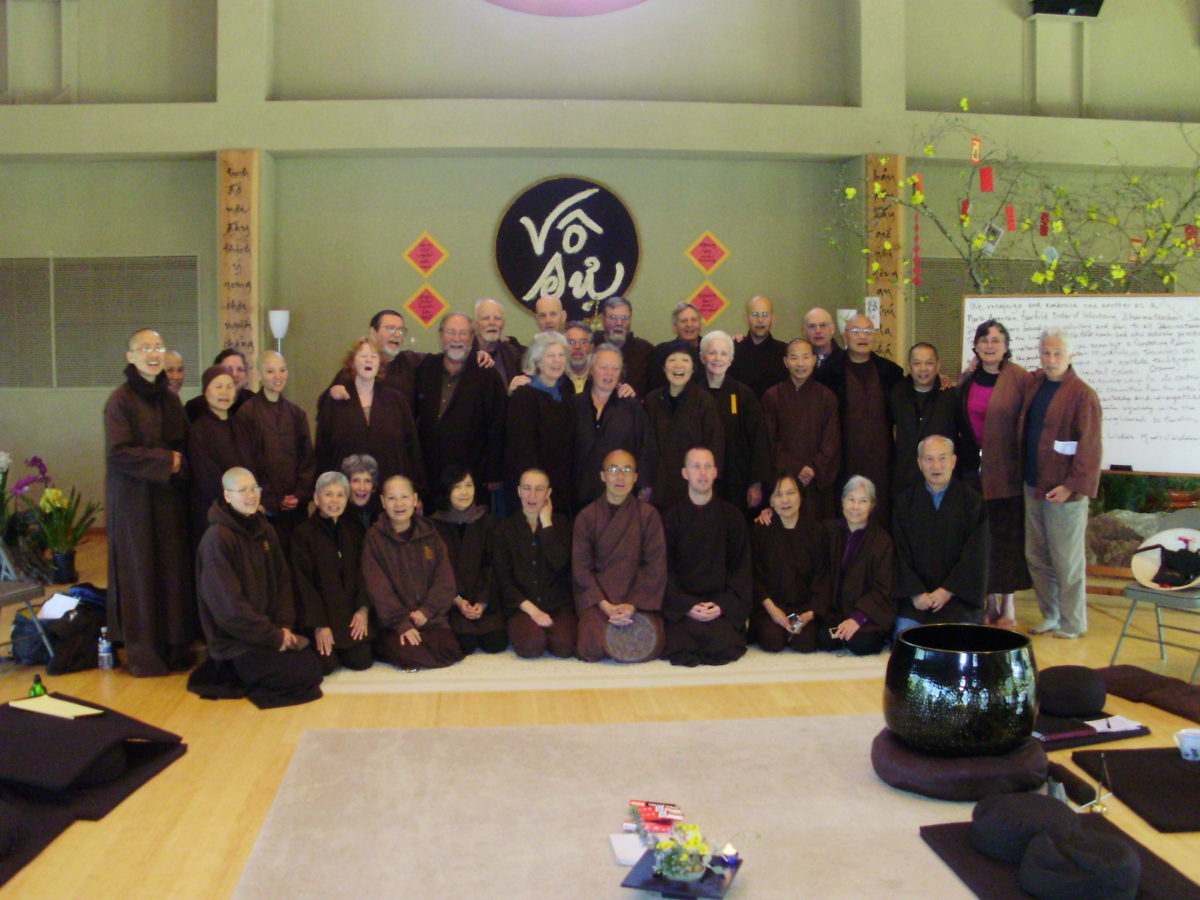
Dharma Teachers Caretaking Council
In March 2010, a Sangha of North American Dharma Teachers gathered at Deer Park Monastery to consider ways we might support each other, the North American Order of Interbeing, and the North American Sangha. During the retreat, we manifested a Dharma Teachers Caretaking Council to nourish and support our practice. Before sharing news of this endeavor,
we offered it to our teacher, so that he might provide guidance and insight. Thay has now reviewed and embraced the fruit of our gathering. Therefore, we joyfully share this news with the larger Sangha. Here is the document from the Dharma Teachers Sangha, manifesting the caretaking council and calling certain Dharma teachers to form the first council. The DT Caretaking Council can be reached by email at dtc@tiephien.org.
Deer Park Monastery — 20 March 2010
We recognize and embrace one another as a North American fourfold Order of Interbeing Dharma Teachers Sangha. Participation in the Dharma Teachers Sangha is voluntary and open to all North American Dharma Teachers who have received Lamp Transmission in the lineage of the Venerable Thich Nhat Hanh and who actively practice in the Plum Village tradition.
As a Dharma Teachers Sangha, we manifest a Caretaking Council representing the fourfold Sangha and grounded in the practice of the Fourteen Mindfulness Trainings. We encourage the Council to receive input from the Dharma Teachers Sangha. With gratitude, the Sangha calls the following Dharma Teachers to serve as the initial Council:
Sister Huong Nghiem Brother Phap Tri Brother Phap Hai Brother Phap Dung Sister Dang Nghiem Anh-Huong Nguyen Eileen Kiera Jack Lawlor Joanne Friday Lyn Fine Mitchell Ratner Peggy Rowe Ward
We entrust and empower the Council to develop ways for its continuation and inclusive representation. The Council may create committees from the wider Dharma Teachers Sangha. We commit to support the Council wholeheartedly and energetically.
We expect the Council to communicate regularly with the Dharma Teachers Sangha and our Root Teacher. We trust this Caretaking Council to function harmoniously and manifest the spirit and practice of the Order of Interbeing.
